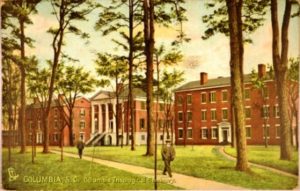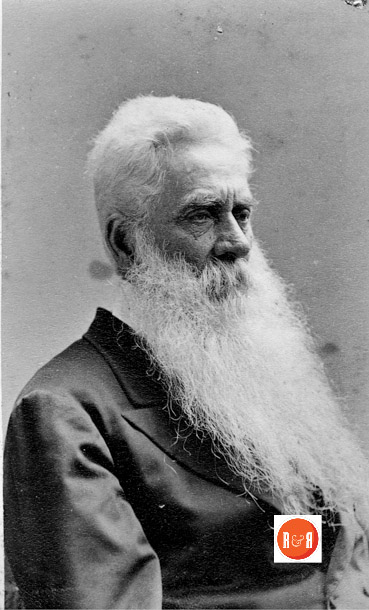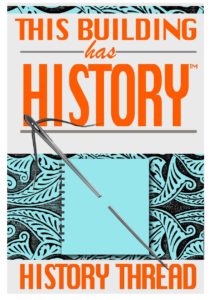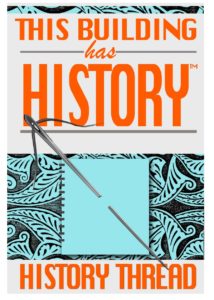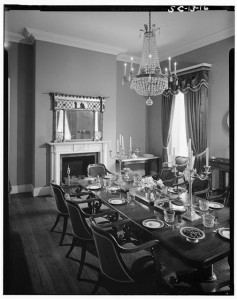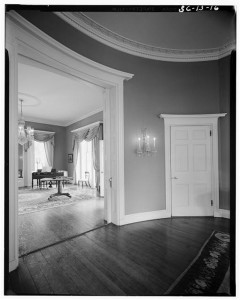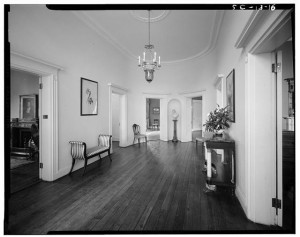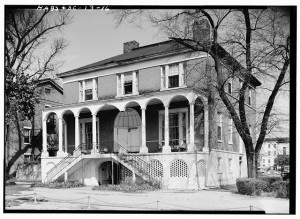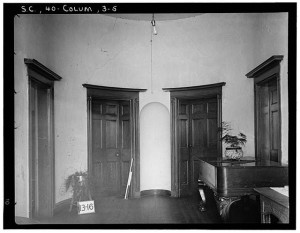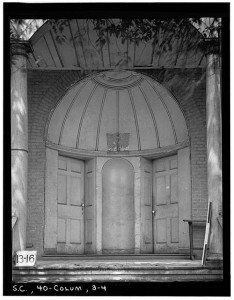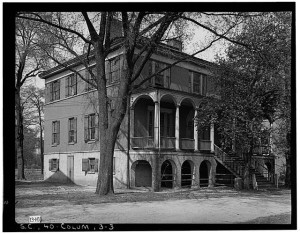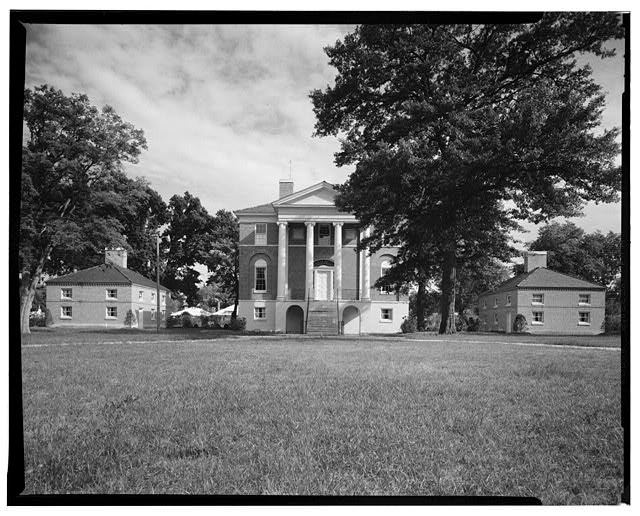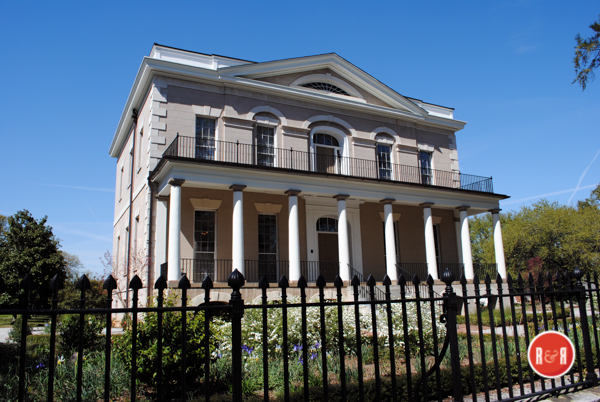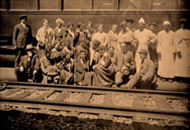A National Register Property
The Rock Hill Herald reported on May 4, 1873 – “Columbia Theological Seminary will hold graduation next Sunday in First Pres. Church in Columbia and seven young men will receive diplomas. The Pres. is Rev. Thornton Whaling.”
The Yorkville Enquirer contained an ad on Sept. 5, 1878 – “for the Columbia Female College, which announced the session will open on Sept. 19. The college had a faculty of twelve member and seven languages were taught. The president is J.L. Jones.”
On June 20, 1888 the Yorkville Enquirer reported – “A competitive exam will be held at each county courthouse on July 3, to select students to receive scholarships to attend Winthrop Training School. The value is equivalent to $150. for the nine month session. Students will board with private families for fees between $15-18.00 per month. Graduates of the school will be entitled to teach in any public school in S.C.”
The Rock Hill Herald reported on Sept. 20, 1888 – “Rev. N.M. Wood of Columbia was in Rock Hill seeking funds for the establishment of a Presbyterian seminary in Columbia. He secured about $1,600. in Rock Hill and Ebenezer.”
The Yorkville Enquirer reported on Sept. 26, 1888 – “The Winthrop Training School for teachers opened in Columbia last Monday. The term will be for nine months. Every county in the state is represented among the students. Ms. Mary W. Brown is the student from York County.”
The Yorkville Enquirer reported on June 19, 1889 – “Commencement exercises of the WTS at Columbia were held last week. Ms. Mary Brown the student from York County became ill during the term and was unable to complete the course.”
The Yorkville Enquirer of Oct. 8, 1890 reported – “Attendance at the Winthrop Training School is greater than it was during the last session. Every county in the state is represented by at least one student.”
City Directories and History: The Ainsley Hall House preserves architecture that is of national importance because of the period it represents, the quality and type of its design, the excellence of its
restoration, and the fame of its architect. Its designer, Robert Mills (1781-1855), was a native South Carolina architect and engineer who studied under Hoban and Latrobe and became the first American-trained Federal architect, serving under 7 Presidents. He was the designer of the Washington Monument and was responsible, in great measure, for the national capital’s early trend toward the classical style in its public buildings. Of the few Mills residences remaining in the United States, the Ainsley Hall House is considered one of the superior examples. Since Ainsley Hall, an English-born wealthy merchant in Columbia, died before the house was completed and it was never occupied or completely finished as a residence, it is more closely associated with the architect. The house was
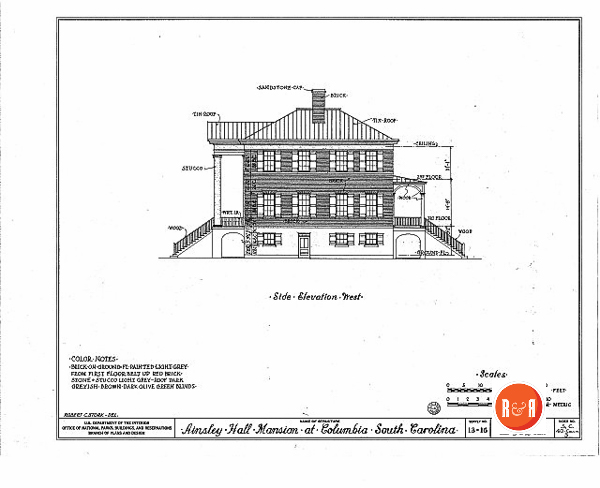
Images(s) and information from: The Library of Congress – HABS Photo Collection
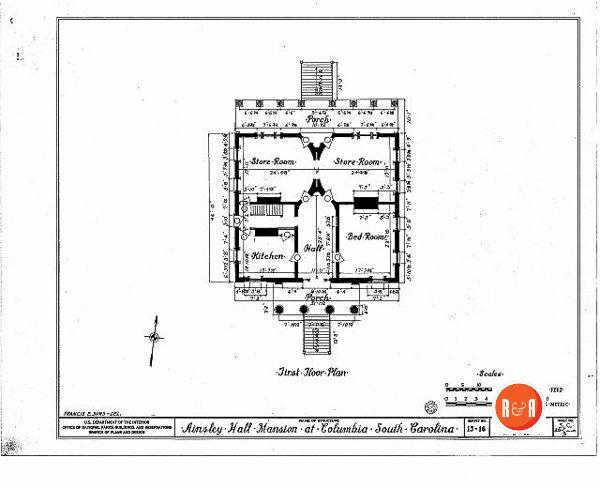 occupied for many years by the Columbia Theological Seminary. Winthrop, the South Carolina College for Women, was founded in the house in 1886. It became the home of the Columbia Bible College from late 1920s to 1962. Built in 1823 in the center of an entire city block of four acres, the Classical Revival style brick mansion is two-storied on an elevated basement. The front façade has an Ionic-temple portico with four massive columns rising from a raised brick arcade. The rear, or garden, entrance has a seven-bay arched porch. Three outbuildings have been reconstructed. Listed in the National Register July 16, 1970; Designated a National Historic Landmark November 7, 1973. [Courtesy of the SC Dept. of Archives and History]
occupied for many years by the Columbia Theological Seminary. Winthrop, the South Carolina College for Women, was founded in the house in 1886. It became the home of the Columbia Bible College from late 1920s to 1962. Built in 1823 in the center of an entire city block of four acres, the Classical Revival style brick mansion is two-storied on an elevated basement. The front façade has an Ionic-temple portico with four massive columns rising from a raised brick arcade. The rear, or garden, entrance has a seven-bay arched porch. Three outbuildings have been reconstructed. Listed in the National Register July 16, 1970; Designated a National Historic Landmark November 7, 1973. [Courtesy of the SC Dept. of Archives and History]
Click here to enjoy learning more about this site and the Columbia Hist. District, #2.
R&R Notes: Minister, author, and theological professor, William Swan Plumer (1802-80) was one of Princeton Theological Seminary’s most well-known students. Born in Griersburg, Pennsylvania, Plumer would graduate from Washington College in Virginia in 1825. Following a year of study at Princeton Theological Seminary in 1826, Plumer began a very active and diverse ministerial career.
During the first several years of Plumer’s ministry he helped organize and found churches in Danville, Virginia and Warrenton, North Carolina. After several years of itinerant preaching ministry, he served as a resident pastor in Petersburg, Virginia from 1831 to 1834, and in Richmond, Virginia between the years of 1835 and 1846. During his Richmond pastorate, Plumer founded a religious weekly, the Watchman of the South, and an institution to assist the deaf, dumb, and blind.
In 1847, Plumer accepted a pastoral call to Baltimore, Maryland. After eight years of ministry with the congregation there, Plumer became pastor of a church in Allegheny, Pennsylvania, where he also served as a professor at Western Theological Seminary. Plumer relocated to the Philadelphia area in the mid-1860s. He assisted a congregation in Pottsville, 1865-66, at which time he received appointment to serve as Professor of Didactic and Polemic Theology at Columbia Theological Seminary in Columbia, South Carolina. He served in this position until 1875, when he was transferred to the chair of Historic, Casuistic, and Pastoral Theology. He held this position until shortly before his death.
Plumer was a prolific author and active churchman. His published works include commentaries, biblical studies, articles, essays, sermons, and a volume on pastoral theology. His writings, while profoundly theological in nature, are very practical in focus. A number of his books have remained in print; they represent a high point in the theological-devotional literature produced of nineteenth century American Presbyterianism.
As a churchman, Plumer had the rare distinction of serving as Moderator of the General Assembly of the undivided Presbyterian denomination (1838) and of its southern branch (1871). In his life and work, William S. Plumer embodied Princeton Theological Seminary’s vision for an intelligent and informed piety that rested on the theological foundations of Scripture and the Westminster Standards. (Information furnished from https://banneroftruth.org)
See the Built of Brick Jaunt – Driving Tour
Stay Connected
Explore history, houses, and stories across S.C. Your membership provides you with updates on regional topics, information on historic research, preservation, and monthly feature articles. But remember R&R wants to hear from you and assist in preserving your own family genealogy and memorabilia.
Visit the Southern Queries – Forum to receive assistance in answering questions, discuss genealogy, and enjoy exploring preservation topics with other members. Also listed are several history and genealogical researchers for hire.
User comments welcome — post at the bottom of this page.
Please enjoy this structure and all those listed in Roots and Recall. But remember each is private property. So view them from a distance or from a public area such as the sidewalk or public road.
